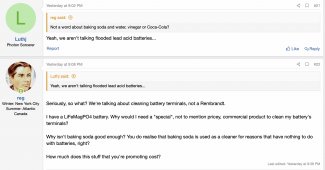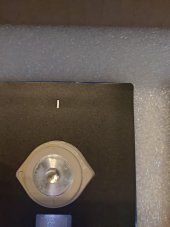reg
Winter: New York City Summer: Atlantic Canada
- Joined
- Mar 24, 2021
- Messages
- 336
That was a weak apology ...
Moving on.
I apologised for comments that confused you with a person that uses the same avatar.
I don't apologise for saying that you couldn't be arsed to at least skim the thread, or for not realising that there's no effing difference, as a matter of common sense, between cleaning a terminal and a busbar.
Looking forward to you apologising for attacking me for being a New Yorker, which also has no basis in fact
I did get a kick from this thread from being reminded of Rod Serling, a name that hadn't crossed my mind for a long time. Who will this forum remind me of next from that era? Paddy Chayefsky?







